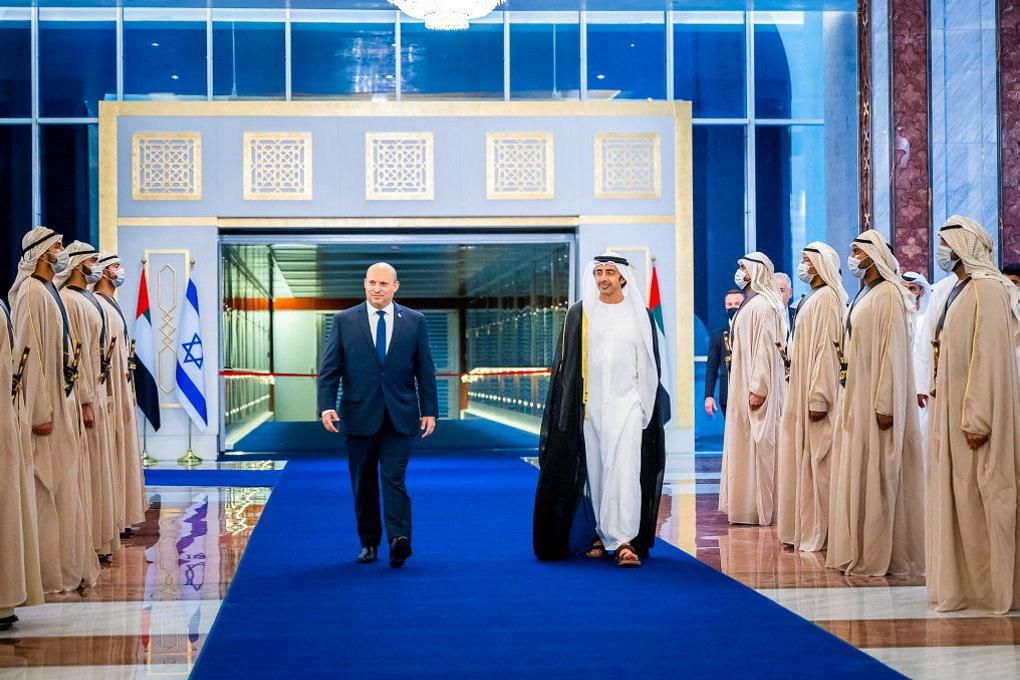Israeli PM meets Emirati prince. Naftali Bennett landed Sunday in Abu Dhabi, marking the first-ever official visit by an Israeli Prime Minister to the United Arab Emirates. Bennett met with Crown Prince Mohamed bin Zayed, the de-facto Emirati leader. The visit is a sign of the endurance of four groundbreaking diplomatic agreements between Israel and Arab states brokered by the Trump administration in 2020. Since then, previously covert relations between the UAE and Israel have warmed significantly: Abu Dhabi has become a popular tourist destination for thousands of Israelis, while bilateral trade reached a whopping $600 million in the first seven months of this year. In the past, the Emiratis made diplomatic ties with Israel contingent on peace efforts with the Palestinians, but Bennett’s visit highlights the evolved priorities of the Gulf states, now more concerned with partnering with Israel to contain a nuclear Iran. The Saudis, for their part, share strategic interests with their Gulf partners — and have been cooperating with Israel on intelligence and security behind closed doors for years. But so far, Riyadh has been unwilling to formalize diplomatic ties with Israel for a variety of reasons, including unfavorable public opinion toward Israel.
More from GZERO Media
What We’re Watching: US and Russia’s peace framework, West Africa on edge, Iran asks Saudi Arabia to put in a good word with Trump
US and Russia reportedly draft new Ukraine peace framework
While the European Union has never been more critical, it is also facing a trifecta of divisive challenges.
In this episode of “Local to global: The power of small business,” host JJ Ramberg sits down with Chapin Flynn, Senior Vice President of Transit and Urban Mobility at Mastercard, and Mark Langmead, Director of Revenue & Compass Operations at TransLink in Vancouver, to explore how cities are making transit easier, faster, and more seamless for riders–an approach known as frictionless urban mobility.
The Trump administration is moving closer to military strikes inside Venezuela.
Graphic Truth: Europe tries to fill US void in Ukraine funding
With widespread AI adoption across sectors, its economic impact is no longer theoretical. It’s measurable. The result? New waves of innovation and a more AI-powered economy. Subscribe to Bank of America Institute for deeper insights on AI’s impact.
In this episode of GZERO Europe, Carl Bildt weighs in on the increasingly fragile future of UK Prime Minister Keir Starmer.
